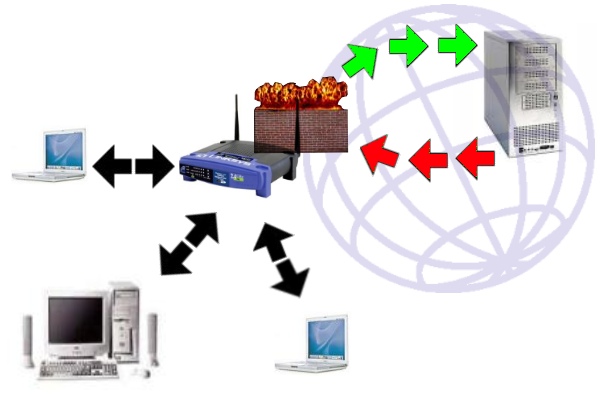A firewall is a piece of hardware and/or software which functions in a networked environment to prevent some communications forbidden by the security policy, analogous to the function of firewalls in building construction.
A firewall has the basic task of controlling traffic between different zones of trust. Typical zones of trust include the Internet (a zone with no trust) and an internal network (a zone with high trust). The ultimate goal is to provide controlled connectivity between zones of differing trust levels through the enforcement of a security policy and connectivity model based on the least privilege principle.
Proper configuration of firewalls demands skill from the administrator. It requires considerable understanding of network protocols, and of computer security. Small mistakes can render a firewall worthless as a security tool.
In most cases, firewalls are not configured for radio streaming blockage.

- Further in the topic
Network layer firewalls operate at a (relatively low) level of the TCP/IP protocol stack as IP-packet filters, not allowing packets to pass through the firewall unless they match the rules. The firewall administrator may define the rules; or default built-in rules may apply (as in some inflexible firewall systems).
A more permissive setup could allow any packet to pass the filter as long as it does not match one or more "negative-rules", or "deny rules". Today network firewalls are built into most computer operating system and network appliances.
Modern firewalls can filter traffic based on many packet attributes like source IP address, source port, destination IP address or port, destination service like WWW or FTP. They can filter based on protocols, TTL values, netblock of originator, domain name of the source, and many other attributes.
Application-layer firewalls work on the application level of the TCP/IP stack (i.e., all browser traffic, or all telnet or ftp traffic), and may intercept all packets traveling to or from an application. They block other packets (usually dropping them without acknowledgement to the sender). In principle, application firewalls can prevent all unwanted outside traffic from reaching protected machines.
By inspecting all packets for improper content, firewalls can even prevent the spread of the likes of viruses. In practice, however, this becomes so complex and so difficult to attempt (given the variety of applications and the diversity of content each may allow in its packet traffic) that comprehensive firewall design does not generally attempt this approach.